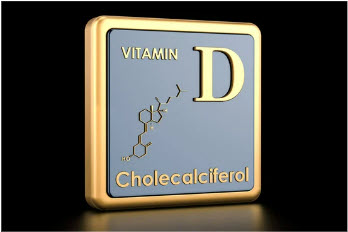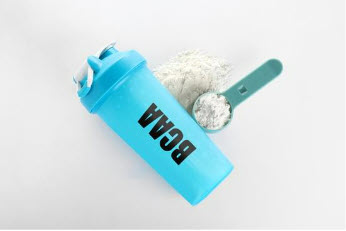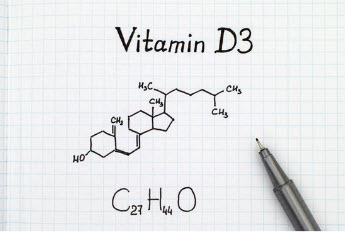The human body is an amazing machine, capable of performing incredible feats when fueled with the right nutrients. In order to ensure peak performance and effectively maximize muscle growth, it is important to understand how certain supplements can help you achieve your desired fitness goals. Magnesium Citrate, Branched Chain Amino Acids (BCAA), and Vitamin D3 with K2, are all essential components for a comprehensive training program. This article will explore the benefits of using these three supplements together, outlining their individual roles in helping athletes reach optimal physical condition.

As professional athletes know, proper nutrition plays a crucial role in achieving success at the gym or on the playing field. What many people do not realize however, is that supplementation is just as important - if not more so - than diet alone. Supplements provide an extra boost that helps individuals obtain greater results from their workouts by facilitating higher levels of energy and strength during exercise sessions. Working synergistically together, Magnesium Citrate BCAA’s, and Vitamin D3 with K2, act as powerful tools that can help athletes reach new heights of performance. Magnesium Citrate aids in muscle recovery post-workout; BCAA’s reduce fatigue and soreness brought about by intense physical activity; while Vitamin D3 with K2 increases calcium absorption which strengthens bones. Taken together they form part of a well-rounded supplement strategy designed to give athletes the edge they need over competitors who have yet to discover this winning combination! This article will explore the fundamentals of each supplement, the potential benefits and the side effects associated with each.
What Is Magnesium Citrate?
Magnesium citrate is a supplement that has become increasingly popular in recent years. It is believed to have beneficial effects on muscle health, and as such many athletes and bodybuilders are now taking magnesium citrate regularly. But what exactly is it and how does it help?

To begin with, magnesium citrate is an organic salt containing both magnesium and citric acid which helps increase absorption of the mineral in the body. Taking magnesium citrate can result in better digestion, improved bone density, reduced stress levels, increased energy levels and even relief from constipation. In terms of muscle development, research suggests that regular supplementation may lead to greater strength gains due to enhanced muscular contractions during weight training exercises. Furthermore, there could be positive impacts on recovery too with faster repair times for damaged tissue after exercise sessions.
In terms of dosages for adults, most experts recommend between 200-400mg per day split into two or three doses consumed before meals; however, this should always be discussed with a qualified healthcare professional beforehand to ensure safety when using supplements like these. Potential side effects include nausea and stomach upset but can usually be avoided by keeping within recommended daily dosage guidelines.
Overall, further studies are needed to fully understand all the potential implications involved with taking magnesium citrate long term - initial evidence appears promising suggesting possible benefits for those engaging in regular physical activity looking to improve their overall performance gains. With sensible usage though there's much potential here for making significant improvements to one’s muscle growth capabilities without risking adverse reactions or unwanted issues arising along the way. Moving forward then let us now take a look at BCAAs (branched chain amino acids).
What Are BCAA Supplements?
BCAA supplements are popular among athletes, bodybuilders and fitness enthusiasts for their ability to support muscle growth. BCAA stands for branched-chain amino acids, which make up a large portion of the proteins in your muscles. They play an important role in building and maintaining muscle mass while also helping with recovery after exercise. Taking additional BCAAs can help increase energy levels during workouts as well as reduce fatigue after exercise.
* Supports increased muscle growth
* Enhances performance by reducing fatigue and increasing energy levels
* Aids in faster post-workout recovery
Adding magnesium citrate to a BCAA supplement helps optimize its effects on both physical performance and overall health. Next, let us take a look at Vitamin D3 with K2.

What Is Vitamin D3 With K2?
Vitamin D3 with K2 is a nutritional supplement that packs an impressive punch. It combines two of the most beneficial nutrients in one convenient package and has been gaining popularity among health-conscious individuals who want to maximize their muscle building potential. Vitamin D3, also known as cholecalciferol, is essential for maintaining strong bones and healthy teeth, while vitamin K2 (also called menaquinone) helps regulate blood clotting and prevents calcification in arteries. Together, these vitamins offer a range of medical benefits including improved immunity, reduced inflammation, increased energy levels and enhanced cardiovascular health. The combination of magnesium citrate, citric acid & Vitamin D3 with K2 ensures maximum potency and absorption into the body so you can get the most out of your investment. With all its amazing properties combined, it’s no wonder Vitamin D3 with K2 is becoming increasingly popular among athletes looking to build leaner muscles faster.

Benefits Of Taking Magnesium Citrate
Now that we understand the fundamentals; what are the benefits and potential side effects of these supplements? Magnesium citrate is an active ingredient that has been gaining popularity in recent years due to the many potential health benefits it provides. It is a mineral supplement derived from magnesium and citric acid, making it gluten-free and non-GMO. Additionally, it often contains magnesium stearate as a flow agent which helps with absorption of the ingredients. Magnesium citrate can be beneficial for individuals who suffer from low levels of magnesium or those looking to maintain higher levels in their bodies.
Benefits include:
* Improved digestion – Magnesium citrate can help improve digestion by reducing indigestion, bloating and constipation.
* Reduce Indigestion - When taken regularly, this supplement may reduce symptoms such as heartburn, nausea, stomach pain and vomiting associated with indigestion.
* Relieve Constipation - Taking magnesium citrate on a daily basis could also help relieve chronic constipation by softening stool and increasing water content in the intestines; helping them pass more easily through the digestive system.
* Increased muscle recovery - Studies have shown that taking magnesium citrate after exercise can greatly increase muscle recovery time and decrease soreness. This makes it especially useful for athletes looking to maximize performance while still allowing plenty of time for rest between workouts.

* Improved cardiovascular health - Another major benefit of using magnesium citrate is its possible ability to support healthy cardiovascular function. Magnesium plays an important role in regulating blood pressure and promoting arterial elasticity; both of which are essential for optimal cardiovascular health. In addition, some studies suggest that regular consumption may lower cholesterol levels and reduce inflammation throughout the body.
Overall, there are numerous potential health benefits associated with taking magnesium citrate supplements on a regular basis. It should always be used under the advice of your doctor or registered dietitian though; as high doses can lead to unpleasant side effects like diarrhea or abdominal cramping if not monitored carefully. With proper guidance however; users may find themselves reaping all the rewards of this powerful mineral supplement!
Benefits Of Taking BCAA Supplements
BCAA supplements are one of the most effective ways to maximize muscle growth and performance. BCAA stands for branched-chain amino acids, which are essential components of every cell in the human body. They also play an important role in helping to maintain optimal health, with benefits ranging from improved energy levels to better brain function. Taking a daily supplement of BCAAs can provide many advantages for adults looking to improve their overall physical fitness and well-being.
Firstly, taking BCAA supplements assists in promoting muscle recovery after intense workouts or competitions. The three primary aminos—leucine, isoleucine, and valine—are metabolized directly by muscles instead of going through the liver like other amino acids do. This means that they reach your muscles faster than any other type of protein source, thus aiding in quicker repair times between sets and reducing post-workout soreness. Additionally, research has shown that consuming BCAAs before training can help reduce fatigue during long workouts and increase mental alertness throughout exercise sessions.

Secondly, not only do BCAAs have a positive impact on physical performance but they may also be beneficial for those trying to lose weight or build lean muscle mass. Since these three particular aminos are metabolized rapidly by our bodies it can help prevent catabolism (muscle breakdown) due to calorie restriction when dieting as well as aid in maintaining healthy blood sugar levels during periods of low caloric intake. Furthermore, leucine specifically helps stimulate protein synthesis at the cellular level allowing for greater gains in strength over time without having to drastically increase calories consumed each day.
Finally, studies suggest that supplementing with BCAAs can benefit heart health by decreasing inflammation markers such as C-reactive proteins (CRP). Lower CRPs indicate less stress placed upon the cardiovascular system allowing for increased longevity along with enhanced athletic performance capabilities since more oxygenated blood is delivered throughout the body with each contraction/beat of the heart. With all these potential benefits associated with taking a daily dose of BCAA supplements it’s no wonder why athletes around the world swear by them! Transitioning into discussing vitamin D3 supplementation next will further explore how this nutrient supports maximum muscle building efforts while providing additional health benefits beyond just physical performance enhancement goals.
Benefits Of Taking Vitamin D3 With K2
When it comes to taking vitamin D3 with K2 for maximum muscle, the benefits are undeniable. Vitamin D3 is an important fat-soluble micronutrient that helps absorb calcium and phosphorus from food sources and also supports healthy artery walls. Meanwhile, vitamin K2 works in tandem with other vitamins like A and D to support overall bone health. When taken together as part of a balanced diet, these two nutrients can help promote optimal growth and development:
* Promotes strong bones due to the combination of essential minerals such as calcium, phosphorous, magnesium, zinc and iron
* Supports immune system function by aiding in white blood cell production
* Enhances absorption of necessary minerals into cells
* Shown to reduce risk of certain cancers when combined with other lifestyle changes
* Found naturally in some foods such as tree nuts, dairy products or through supplementation in capsule form
For adults over 18 years old who want to build maximum muscle strength, we recommend incorporating a daily dose of 200 IU (international units) of vitamin D3 along with 90 mcg (micrograms) of vitamin K2 either through food sources or supplement capsules. The key here is consistency - take your daily dose every day so you will get the most out of this powerful duo!

Summary of Benefits
Magnesium plays an essential role in the body’s metabolism, helping convert food into energy that is used during exercise or other activities. It is essential for bone health, healthy immune system function and cardiovascular health. BCAAs aide in maintaining muscle mass and in the post-workout recovery. When added together with vitamin D3 with K2, these three supplements provide a powerful combination that can maximize muscle development and strength gains from training sessions. Vitamin D supports calcium absorption into bones which makes them stronger and less prone to injuries. It also boosts immunity so you can hit the gym more often without getting sick due to overtraining. Additionally, Vitamin D encourages fat loss through improved insulin sensitivity resulting in better utilization of glucose for fuel instead of storing it as fat cells. In summary this trio works together synergistically to build leaner muscles faster while keeping you safe from injury related issues at the same time!
Potential Side Effects of Magnesium Citrate, BCAA Supplements, & Vitamin D3 With K2
These supplements offer various benefits; and like with anything else; we must review the potential side-effects too.
Despite these potential benefits of magnesium citrate supplementation for adults, there have been reports of several mild side effects associated with its usage as well. These include nausea/vomiting, abdominal cramps/discomfort, diarrhea and changes in heart rate due to electrolyte imbalances in the body caused by excessive intake of magnesium-containing products such as this one. Despite being rare occurrences in most people, anyone experiencing any serious symptoms while consuming large doses of this supplement should stop using it immediately and seek medical assistance if needed.
One possible side effect of BCAA supplements is digestive issues such as bloating or constipation due to their artificial colors and flavors. Additionally, some people experience difficulty sleeping after taking BCAA's due to their stimulating properties. If you notice any discomfort while supplementing with BCAAs, consider reducing the dosage or discontinuing use altogether.
It's important to note that everyone reacts differently to different types of supplements; therefore, it’s recommended that you consult a healthcare professional regarding proper dosages and safe use guidelines before starting any new supplement regimen. As always, practice moderation when attempting to gain maximum muscle building results through supplementation.
There are many benefits of using magnesium citrate, BCAA and vitamin D3 with K2 for maximum muscle growth and performance, yet, there is still potential risk involved. It is important to be mindful when taking these supplements as they may cause adverse side effects. As such, it is best to discuss any supplementation plan with your doctor before beginning a regimen.
Additionally, if you experience any adverse reactions related to this supplement combination, please discontinue use immediately and contact your physician.
The key to achieving maximum muscle-building results when using these supplements in tandem lies in finding the correct dosage for each component. Too much or too little could result in either no effect at all or unwanted side effects. Therefore, it is essential that you follow directions carefully and monitor how your body responds accordingly. This will help maximize the effectiveness of the supplement while minimizing any potential risk associated with its usage.
To get the most out of this combo for muscle growth, it's best to find a practitioner who has expertise and experience in helping athletes build their muscles safely and effectively through supplementation. With their guidance, they can recommend dosages tailored specifically towards individual needs that are safe yet still provide desired results efficiently.
Summary: Maximizing the Benefits of Using Magnesium Citrate, BCAA And Vitamin D3 With K2
Recent studies have found that up to 91% of adults in the United States are deficient in vitamin D3. This can lead to a variety of health issues, including an increased risk for certain types of cancer and cardiovascular disease. Taking Vitamin D3 with K2 is one way to ensure you get enough of this important nutrient. Combining it with other supplements such as magnesium citrate, BCAA, and K2 can further maximize its benefits and help improve overall health.
Magnesium citrate helps maintain muscle contraction while also aiding digestion and absorption of nutrients into the body. It has been shown to reduce fatigue after exercise and aid in recovery time between workouts. Additionally, it plays a role in nerve transmission which helps regulate moods, energy levels, and mental clarity.
BCAAs (branched-chain amino acids) are essential amino acids that must be obtained through diet or supplementation since they cannot be produced by the body on its own. They play a major role in promoting protein synthesis within muscles enabling greater strength gains during exercise sessions. Furthermore, BCAAs may assist in reducing post-exercise soreness making them ideal for athletes looking to increase their performance without sacrificing recovery times or risking injury from overtraining.
When taken together as part of an active lifestyle plan, these supplements provide maximum benefit when combined with regular physical activity and healthy eating habits. Magnesium Citrate supports healthy muscle contractions; BCAA promotes increases in strength gain; Vitamin D3 enhances immune system functioning; and K2 serves as an antioxidant providing protection from cellular damage caused by free radicals present in our environment today. Supplementing an already balanced diet with these four nutrients will support optimal health outcomes allowing athletes to reach peak performance goals faster than ever before!
Frequently Asked Questions
Are There Any Interactions Between Magnesium Citrate, BCAA And Vitamin D3 With K2?
The question of whether there may be any interactions between magnesium citrate, BCAA and vitamin D3 with K2 is an important one to consider when looking to maximize muscle growth. As a professional trainer, I would recommend that anyone who chooses to supplement their diet with these substances should first consult with their doctor or nutritionist for personalized guidance.
Given the nature of the compounds in question, it is likely that they will interact in some way. Magnesium citrate helps to support healthy blood sugar levels and can reduce fatigue; BCAA (branched-chain amino acids) are essential amino acids found in protein sources such as meat, dairy products, eggs and nuts; and Vitamin D3 aids in calcium absorption which supports strong bones and muscles. Meanwhile, K2 plays an important role in regulating calcium metabolism by helping to move calcium from the bloodstream into your bones where it belongs.
As all of these supplements have distinct purposes within the body, it is possible that taking them together could potentially produce synergistic benefits if taken correctly – although this has yet to be extensively studied or proven. For example, combining magnesium citrate and vitamin D3 may help boost energy production while taking BCAA alongside K2 may further enhance bone health by promoting better calcium utilization throughout the body. However, before beginning any supplementation regimen involving multiple ingredients, it is always best practice to discuss options with a medical professional who understands individual needs best.
How Long Does It Take to See Maximum Muscle Building Results From Taking Magnesium Citrate, BCAA And Vitamin D3 With K2?
Maximizing muscle building results with supplementation can be a tricky endeavor. With the right combination of supplements, however, it is possible to see significant gains in both size and strength. Magnesium citrate, BCAA, Vitamin D3 and K2 are all popular options for athletes looking to increase their performance or build more muscle mass. But how long does it take to see maximum muscle-building results from using these four components together?
The answer depends on several factors such as an individual's fitness level, diet and exercise routine. Generally speaking, most people who use magnesium citrate, BCAA, Vitamin D3 and K2 together will start to experience positive effects within 3-4 weeks if they have a regular workout schedule. However, some individuals may need up to 8 weeks before seeing noticeable changes in their muscles. It is important to remember that proper nutrition and adequate rest should also be included when taking any supplement regimen for best results.
When beginning a new supplement program like this one, it is always wise to speak with a doctor or qualified health professional prior to use so you can get advice tailored specifically to your needs. Additionally, it can be helpful to track progress over time by measuring body composition changes or tracking gym performance metrics (such as weight lifted). This way you can better understand how quickly the supplements are working for you and make adjustments accordingly if necessary.
By combining the appropriate dosage of magnesium citrate, BCAA, Vitamin D3 and K2 along with an effective training plan and nutritional support system there is potential for greater muscular gains than what could be achieved without them. Through consistent monitoring of progress made while using these four components together users should be able to determine which approach works best for them in order gain optimal result from their efforts in the shortest amount of time possible.
Is It Safe To Take Magnesium Citrate, BCAA And Vitamin D3 With K2 On A Daily Basis?
The question of whether taking magnesium citrate, BCAA and vitamin D3 with K2 on a daily basis is safe has become increasingly important. With the rise in popularity of these supplements among athletes and fitness enthusiasts, it is essential to understand the effects that they can have when taken regularly. This article will assess the safety of using this combination of supplements as part of an exercise routine, while considering potential risks associated with long-term use.
When determining if it is safe to take magnesium citrate, BCAA and vitamin D3 with K2 on a daily basis, one must consider both short-term and long-term side effects. In regards to short-term usage, each individual supplement should be assessed for any adverse reactions or interactions that could occur from mixing them together. For example, there are some reported cases where high doses of Vitamin D3 may cause nausea or fatigue in certain individuals. It is therefore recommended that users start out at lower doses before gradually increasing their intake over time if deemed necessary by a health professional.
When looking at the longer-term effects associated with regular use of this particular combination of supplements, research indicates that most serious concerns arise from overdosing rather than simply taking too much on a regular basis. Magnesium toxicity can occur when excessive amounts are ingested; however, such an event would require significantly higher dosages than what is typically found within these products. Similarly, although BCAA supplementation can lead to increased levels of ammonia in the blood stream which can affect liver function if left untreated, studies suggest that moderate intakes remain generally safe for healthy individuals who do not suffer from medical conditions like diabetes or kidney disease.
Overall, then, taking magnesium citrate combined with BCAA and vitamin D3 along with K2 appears to be relatively safe when done so responsibly and under physician supervision if needed. As always though, caution should be used whenever introducing new dietary supplements into an existing regimen due to the possibility of unexpected interactions between ingredients which may adversely impact overall health outcomes.
Is Magnesium Citrate, BCAA And Vitamin D3 With K2 Suitable for People With Certain Health Conditions?
It is important to consider if taking magnesium citrate, branched chain amino acids (BCAAs) and Vitamin D3 with K2 on a daily basis could be suitable for people with certain health conditions. Athletes should have an understanding of the potential benefits and risks associated with this combination of supplements in order to provide guidance to those who are considering using them.
The first factor that athletes must take into account when assessing its suitability for their clients is the safety profile of these substances. Magnesium citrate, BCAAs and Vitamin D3-K2 can all interact with medications or existing medical conditions, so it is best to consult a healthcare provider before starting any supplementation program. It is also important to note that some individuals may experience side effects from taking these supplements, including nausea or indigestion, constipation or diarrhea. Therefore, professional trainers need to ensure that their clients understand the potential adverse reactions that may occur as well as how to manage them appropriately should they arise.
In addition to evaluating safety concerns when making decisions about supplement use, athletes should assess whether there are any contraindications between these particular compounds and specific health conditions. For example, both magnesium citrate and vitamin D3 have been linked with increased risk of hypercalcemia in individuals suffering from kidney disease; therefore, caution should be taken by anyone in this category prior to beginning supplementation. Likewise, BCAA supplementation has been associated with increased blood sugar levels in individuals who already suffer from diabetes mellitus type 2; thus appropriate monitoring of glucose levels during supplementation may be necessary depending on the individual’s needs. By thoroughly researching possible interactions between each component within the combination formula being considered, professional trainers will be able to make informed decisions regarding its appropriateness for their client's unique circumstances and personal goals.

Overall, due diligence must be exercised by professional trainers when recommending any dietary supplement regimen containing multiple components such as magnesium citrate, BCAAs and Vitamin D3-K2 for maximum muscle gains. Appropriate assessment of safety issues coupled with consideration for any contraindications based upon pre-existing medical conditions are essential steps towards providing optimal care related to supplementation advice given by professionals in this field.
Are There Any Alternatives to Magnesium Citrate, BCAA And Vitamin D3 With K2 For Maximum Muscle Building?
Recent research has revealed that more than half of all adults in the United States are not getting enough vitamins and minerals from their diet, making supplementation increasingly important. Magnesium Citrate, BCAA, Vitamin D3 with K2 can be a great way to get maximum muscle building results. However, for those who have certain health conditions or allergies, there may be other alternatives worth considering.
Creatine is a naturally occurring compound found in meat and fish that helps build muscle mass when taken regularly as part of an exercise regime. It has been extensively studied over many years and is known to produce positive effects on strength and power output during training sessions. Creatine also plays a role in improving endurance levels by helping muscles recover faster after exertion. Additionally, it can help reduce fatigue associated with intense workouts making it an ideal supplement for athletes looking for maximum performance gains.
Another option is whey protein isolate which is derived from cow's milk. Whey protein isolate contains high concentrations of essential amino acids necessary for muscle growth and repair. When used alongside regular exercise programs such as weightlifting, this type of protein powder can provide vital nutrients for optimal body composition goals quickly and effectively. Furthermore, due to its low lactose content, people with sensitivities to dairy products may find this form of supplementation preferable compared to traditional forms like casein or whole-wheat proteins powders.
For individuals wanting to boost their muscle mass without compromising their health status, exploring these alternative options could prove beneficial in optimizing their fitness journey while avoiding potential side effects associated with magnesium citrate, BCAA and vitamin d3 with k2 supplements.
Conclusion
The combination of Magnesium Citrate, BCAA and Vitamin D3 with K2 is a powerful approach to creating maximum muscle growth. The synergistic effects of the individual components are what make this supplement stack so effective in achieving this goal. With that said, it is important to recognize the potential interactions between each component as well as any possible health risks associated with their daily use.
When used correctly, Magnesium Citrate, BCAA and Vitamin D3 with K2 can be safely taken on a daily basis for long-term muscle building results. Although some individuals may experience negative side effects from taking these supplements, there are alternatives available such as food sources or other supplementation options which can provide similar benefits without risking adverse reactions.
In conclusion, using Magnesium Citrate, BCAA and Vitamin D3 with K2 together can be an incredibly useful tool when aiming for maximum muscle growth; however, one must carefully consider all aspects before committing to adding them into one’s daily routine. It is highly recommended to consult with a professional trainer or nutritionist if attempting to utilize this powerful supplement stack in order to maximize safety while still obtaining optimal results.
